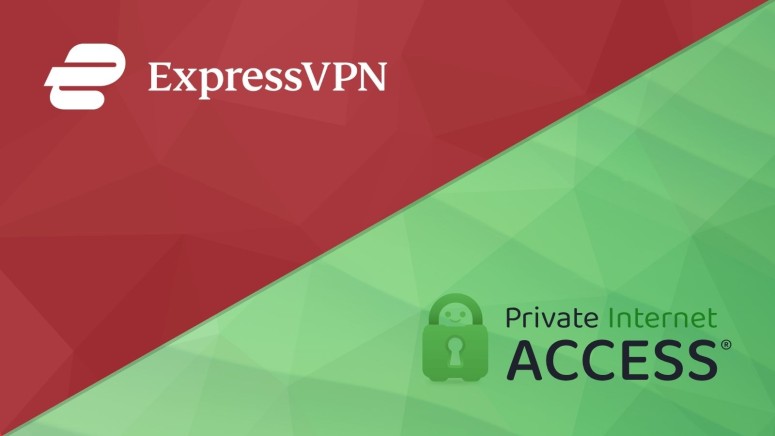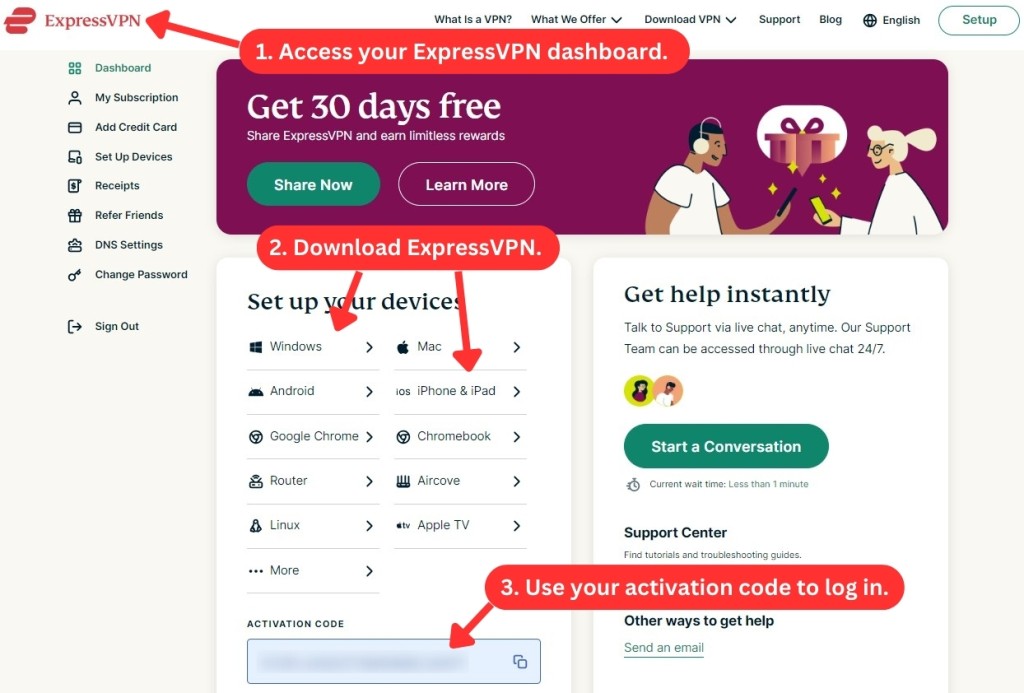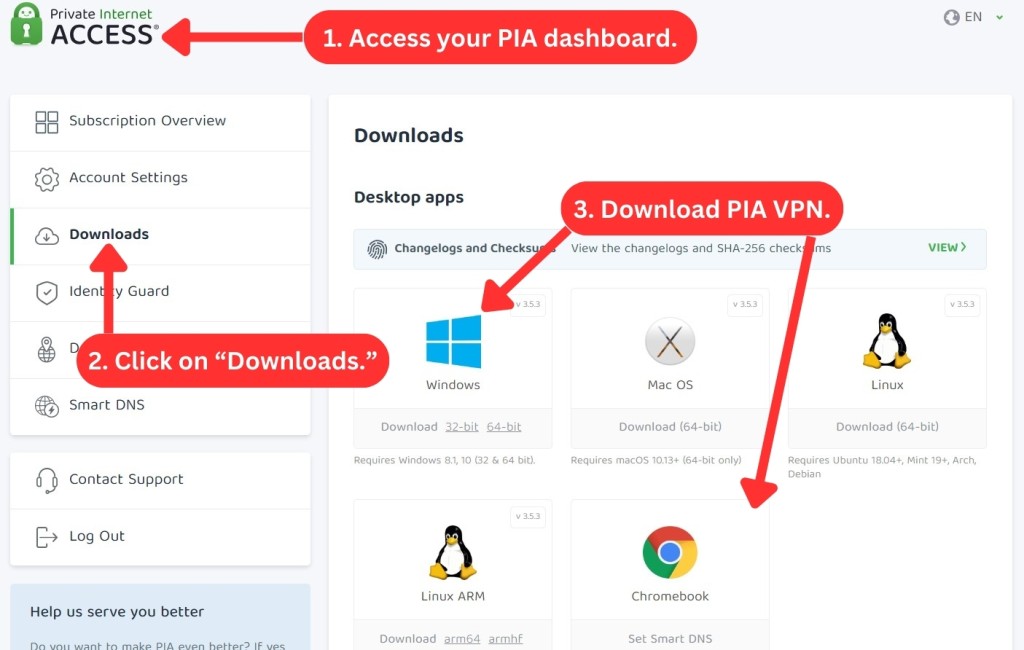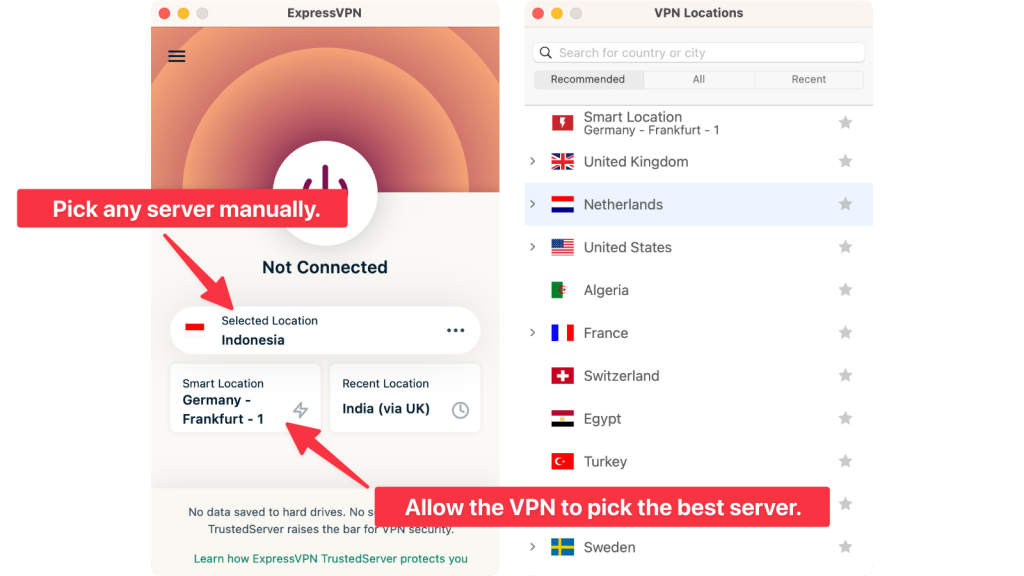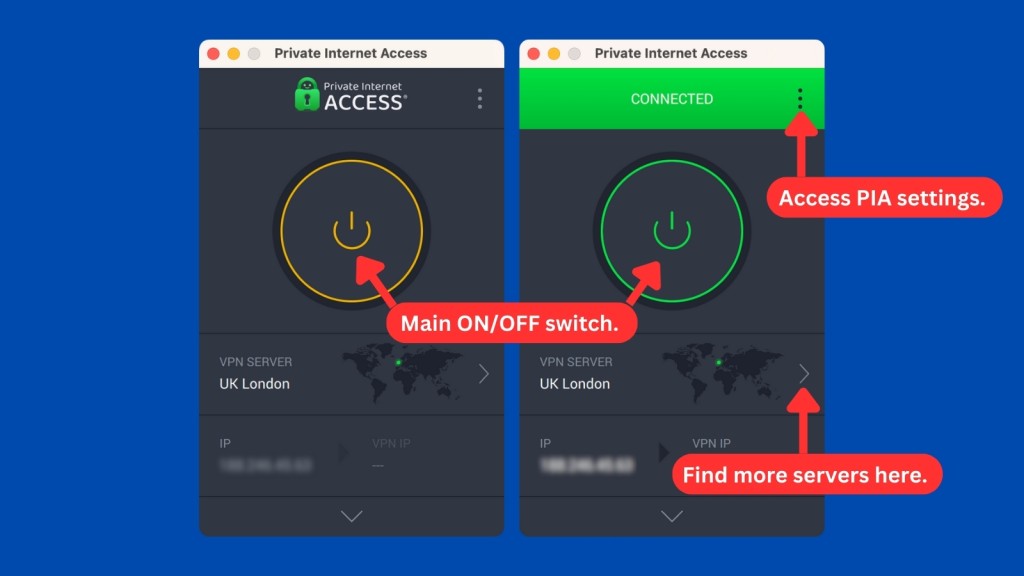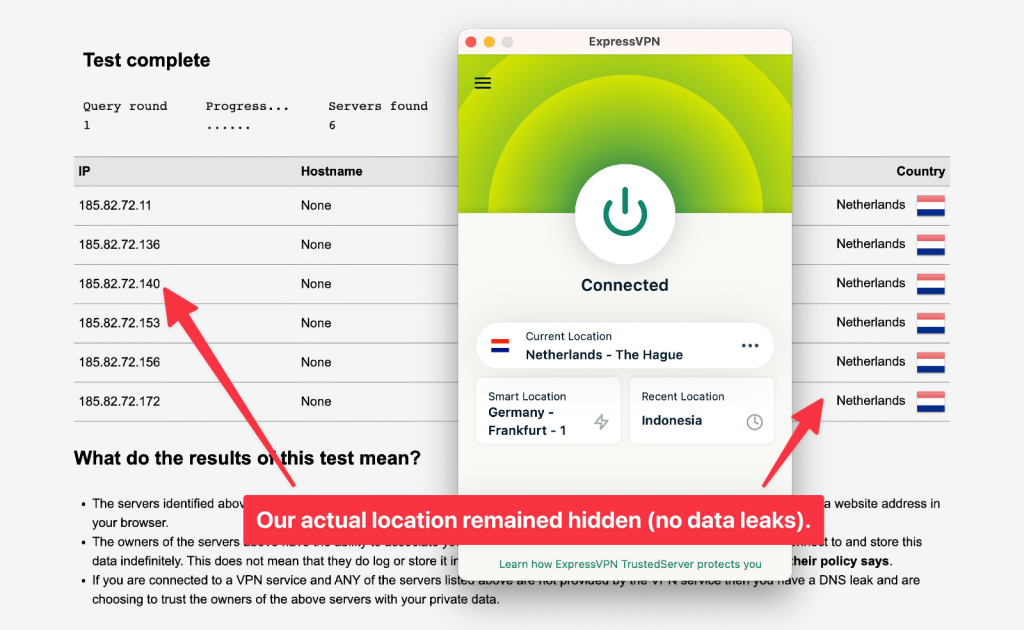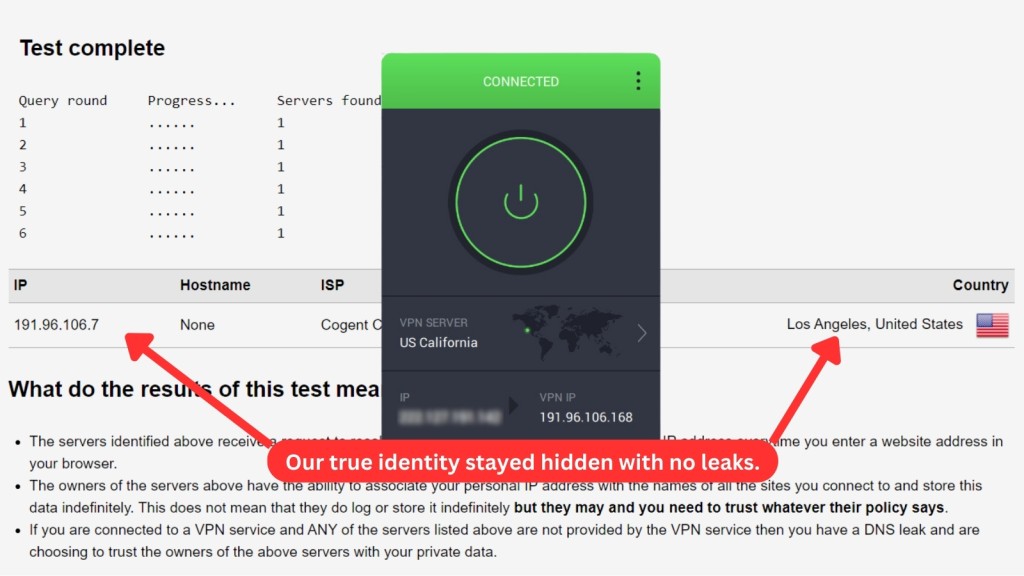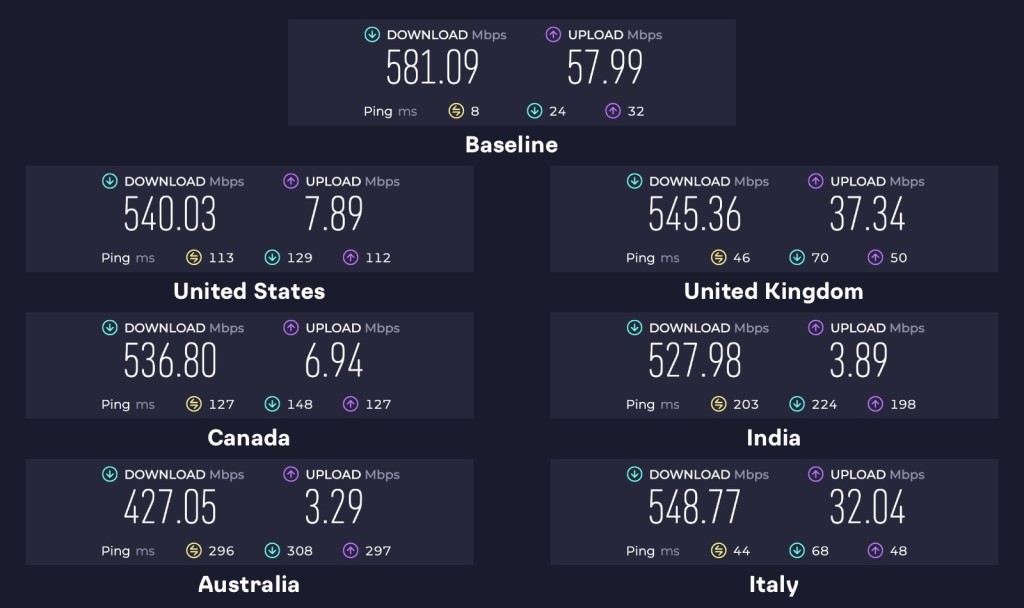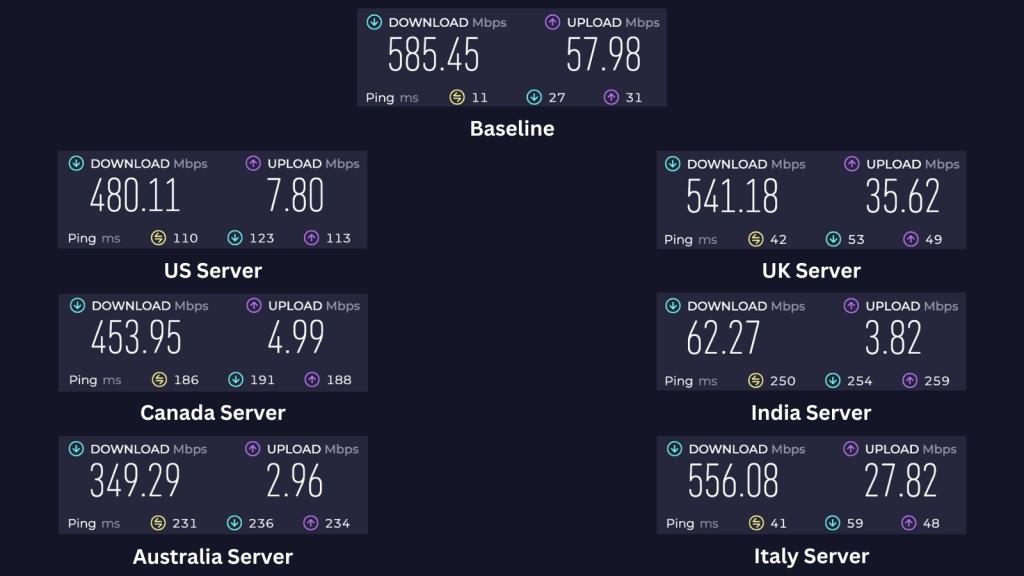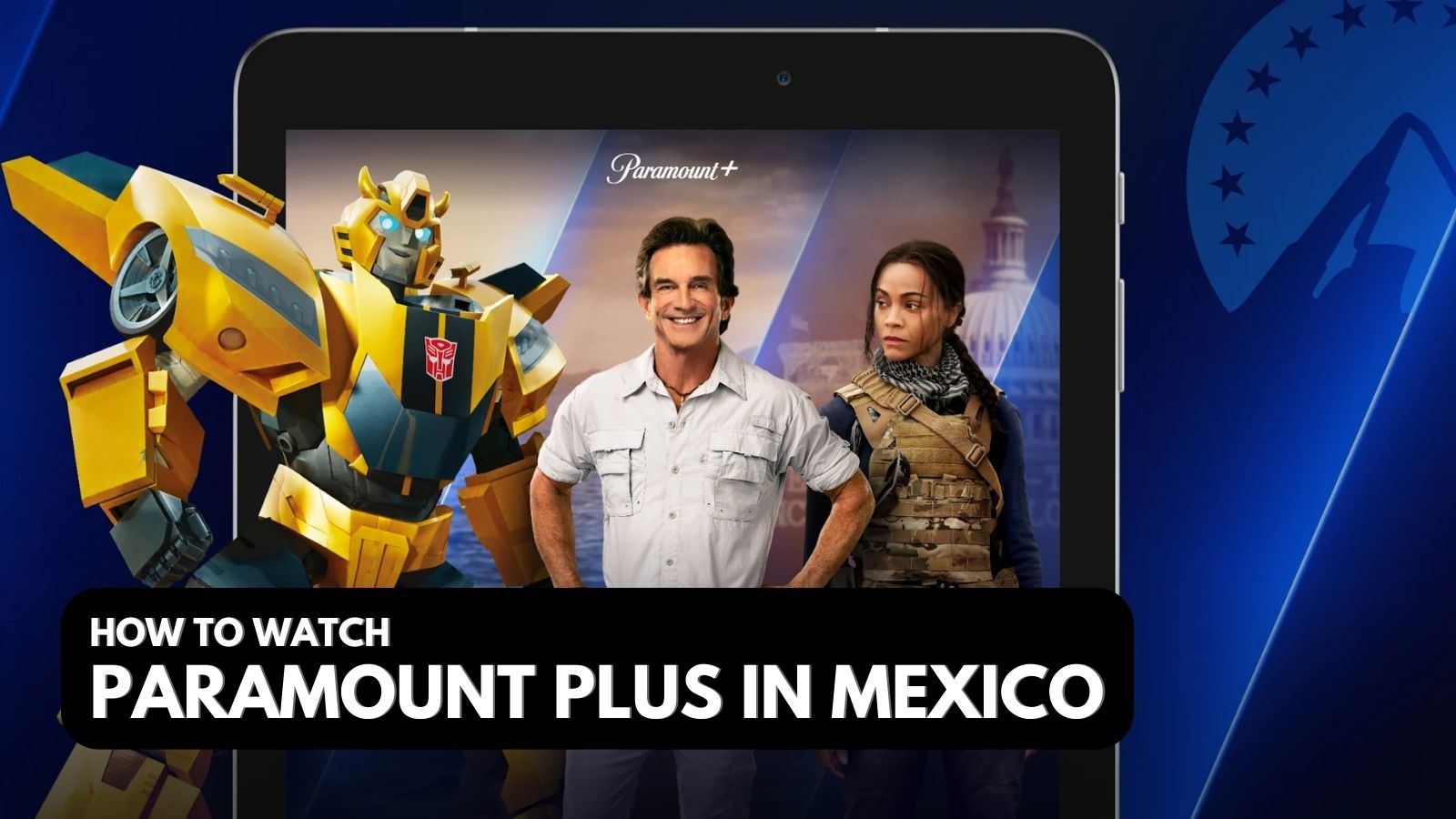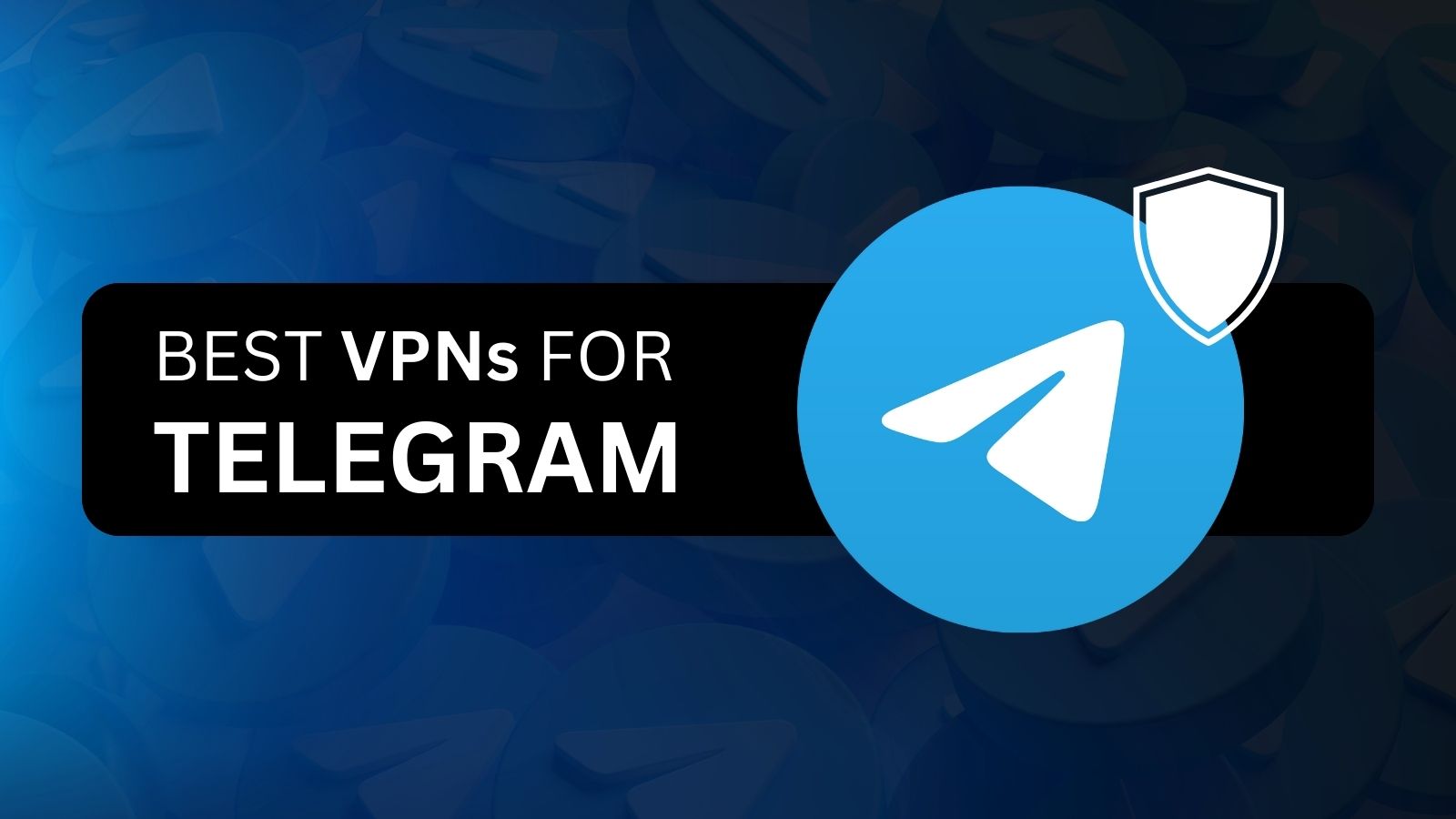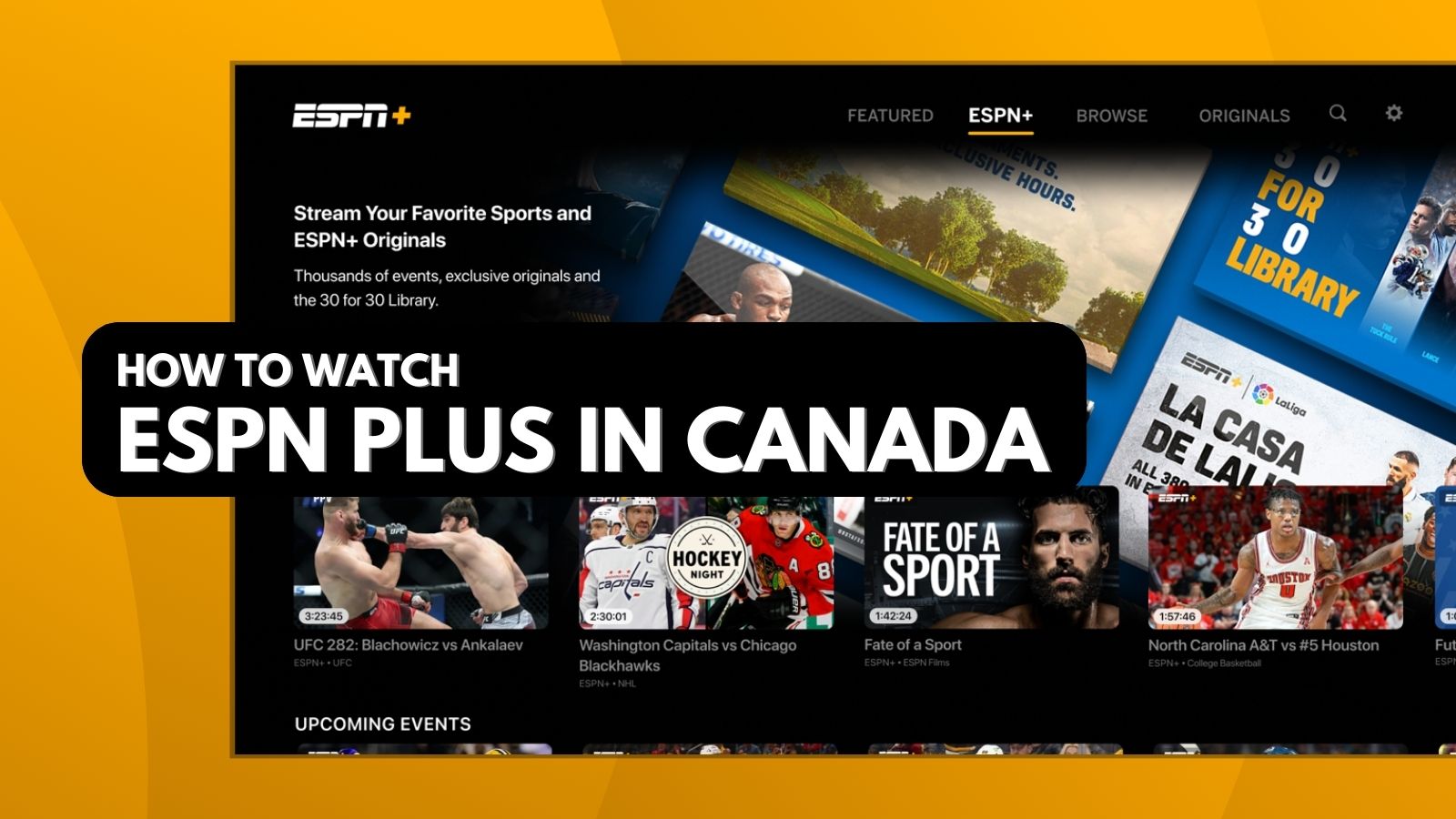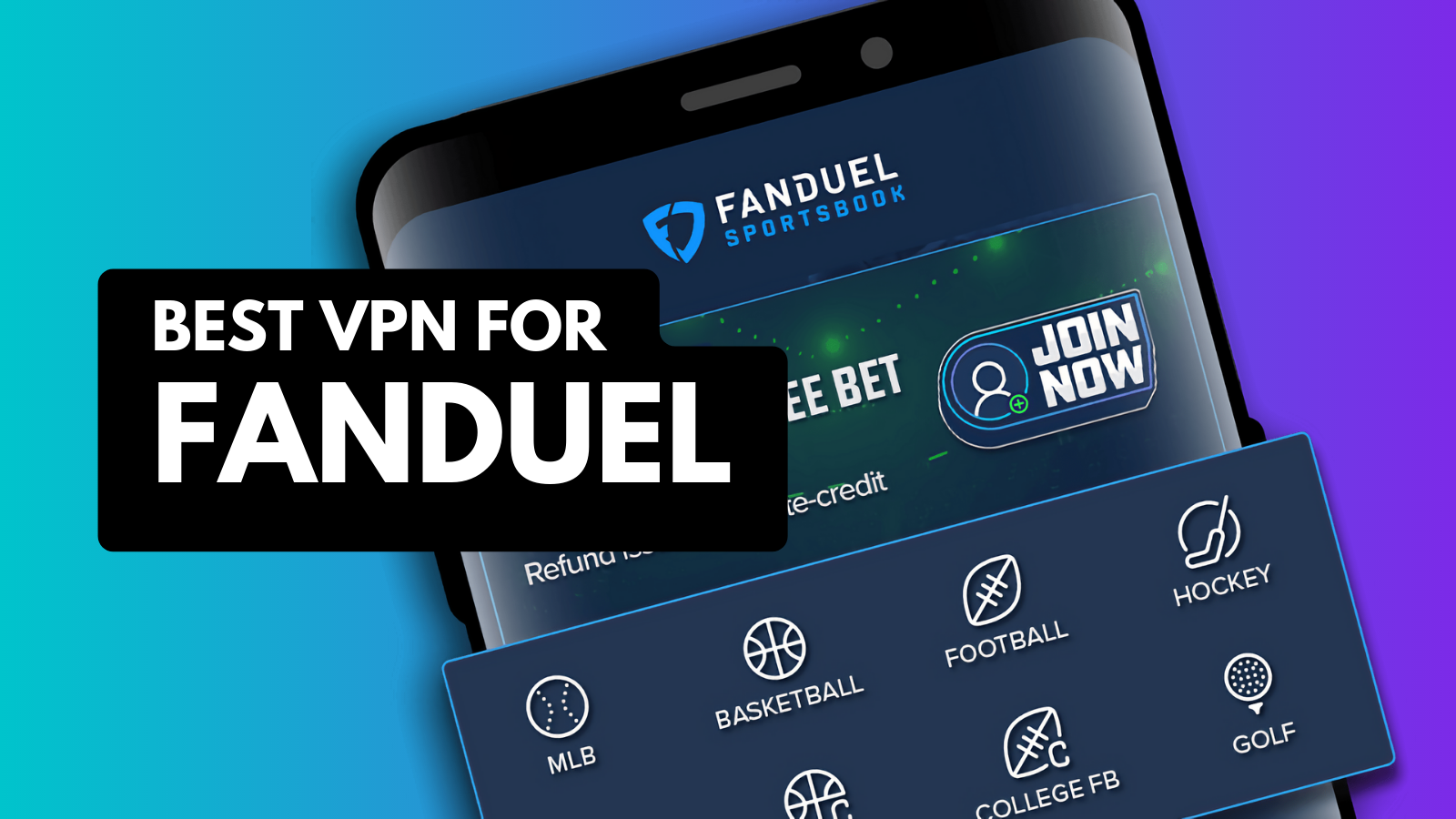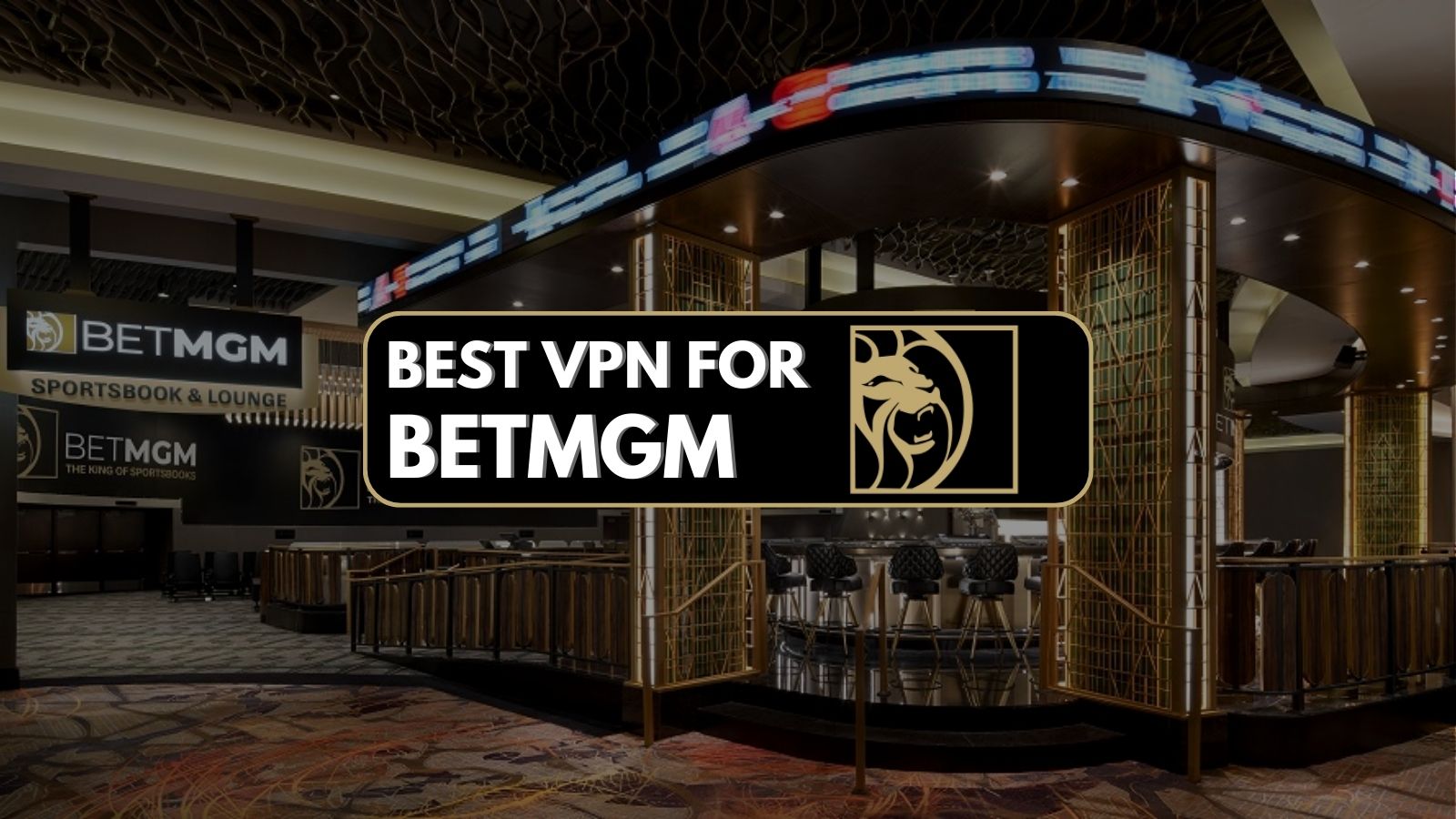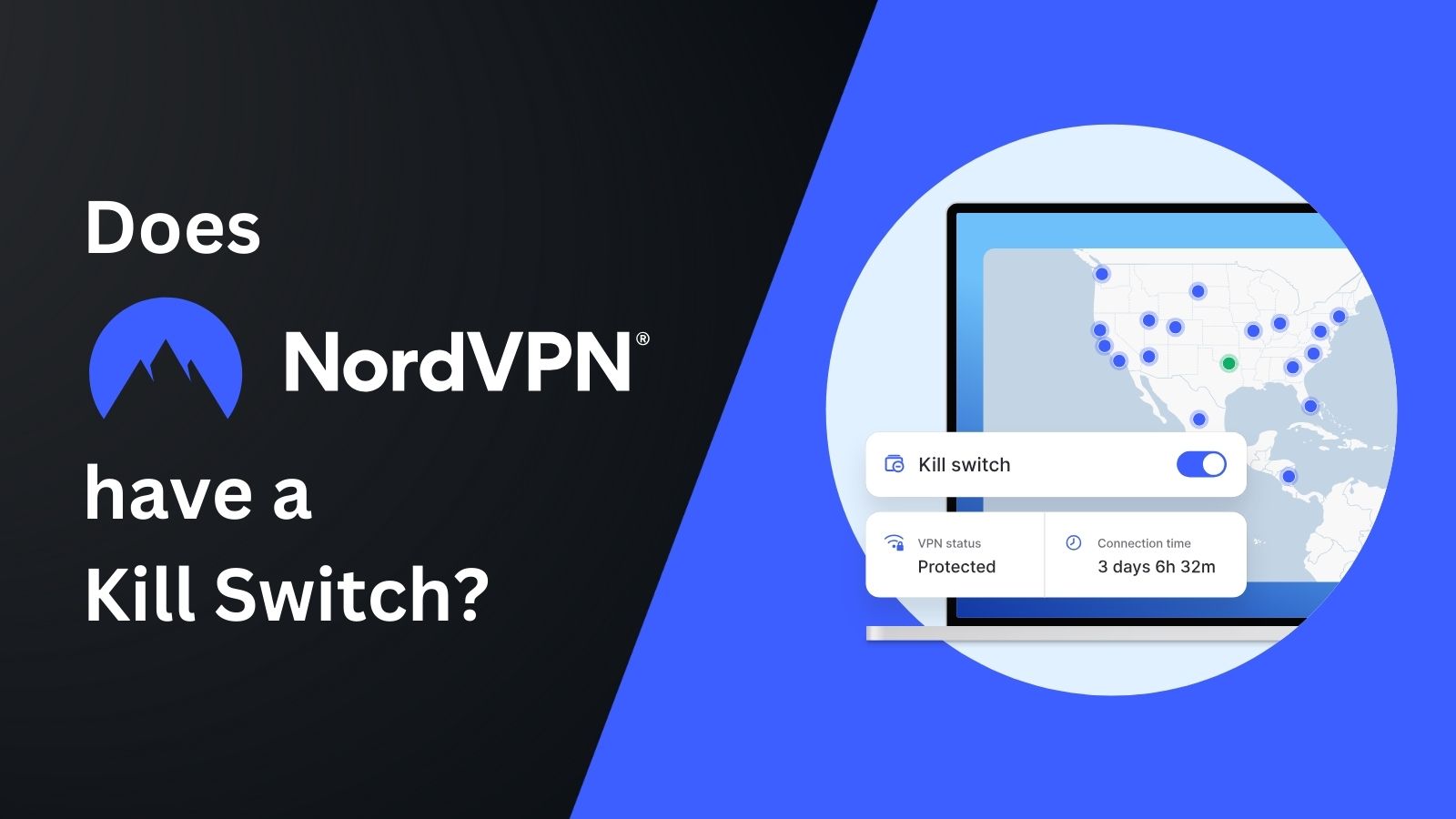When you purchase through links on our site, we may earn an affiliate commission. Here’s how it works.
ExpressVPN vs. Private Internet Access 2025
Our experts have reviewed 53 VPN providers, which were put through extensive rounds of testing. To learn more about that process, here’s how we review VPNs, where we explain our criteria and our policy of being fully transparent.
When it comes to choosing between ExpressVPN vs PIA, you're faced with a decision between two of the best VPN services. But which one truly serves your needs?
Hailing from the British Virgin Islands, ExpressVPN prides itself on a robust no-logs policy and stellar performance. It’s tailored for practically any use and is a top choice if you seek anonymity without sacrificing speed.
Then there’s Private Internet Access (PIA) from the United States, which champions a rigorous no-logs stance despite its 5-Eyes Alliance jurisdiction. Boasting high-speed performance, vast server coverage, and advanced customization, PIA stands out if you value flexibility and configurability.
But which VPN offers better security? Faster connection speeds? The most reliable customer support? Before we address these questions, here’s a glance at what each service offers.
But this comparative table only shows the tip of the iceberg. This comprehensive PIA vs ExpressVPN comparison aims to go beyond mere statistics to help you make the best choice.
We’ll meticulously evaluate crucial aspects such as countries of origin, server variety, connection speeds, platform compatibility, security features, ease of use, customer service, and cost, among others.
Background, Jurisdiction & Reputation
Understanding a VPN’s legal jurisdiction and dedication to confidentiality is crucial. Ideally, you need to stay away from services within the 5/9/14-Eyes Alliances, as they might compromise user data. Let's delve into how ExpressVPN and PIA stack up in these areas.
ExpressVPN - (Score 9/10)
ExpressVPN started its journey in 2009 in the privacy-friendly British Virgin Islands. This positioning places it outside any surveillance alliance, highlighting its focus on privacy.
In 2021, Kape Technologies acquired ExpressVPN, which joined the ranks of other popular services like CyberGhost, Private Internet Access (PIA), and ZenMate. Despite this, ExpressVPN continues to function with autonomy in terms of its operational framework and policies. However, in 2023, its parent company, Kape, transitioned to privatization under Unikmind Holdings, a major shareholder.
Additionally, ExpressVPN operates under a strict no-logs policy and undergoes regular independent audits to verify its claims. Its use of RAM-only servers, which temporarily store your data and wipe it clean upon server reboot, further strengthens the platform's security.
Historically, ExpressVPN has maintained a clean slate with no data leaks or breaches, which affirms its dedication to data confidentiality.
Private Internet Access - (Score 8/10)
Established in the United States in 2010, Private Internet Access resides within the 5-Eyes jurisdiction. This raises potential data privacy concerns since PIA can be legally obliged to share your data with authorities upon request.
However, PIA upholds a strict no-logs policy, which Deloitte Audit Romania validated through a third-party assessment.
While PIA and ExpressVPN are both under Kape Technologies’ corporate umbrella, PIA maintains an independent infrastructure and operational standards. Moreover, it uses a RAM-based architecture, so there’s no risk of persistent logs or data exposure.
PIA has also maintained a clean record without any significant leaks or breaches. In 2018, the FBI forced PIA to provide information about a user, but the service upheld its no-logs promise and had no data to provide.
Who’s the Winner? ExpressVPN!
ExpressVPN takes the lead in this round due to its jurisdiction in the British Virgin Islands. Its background and ongoing commitment to transparency through consistent third-party audits further support its stance on data protection.
Hence, if a privacy-centric jurisdiction and a spotless track record are your main criteria, you should get ExpressVPN.
Supported Platforms & Devices
Extensive device coverage is a key step towards complete online security. Let’s compare how well ExpressVPN and PIA accommodate various devices and platforms.
ExpressVPN - (Score 10/10)
ExpressVPN offers extensive desktop support with native apps for Windows, macOS, Linux, and ChromeOS. This versatility extends to mobile platforms, including Android, iOS, Kindle, and even NOOK.
The service also caters to your entertainment needs with apps for Android TV, Amazon Fire TV, Xbox, PlayStation, and more. Additionally, it protects your browsing activity with extensions for Chrome, Firefox, Edge, and Safari browsers.
ExpressVPN allows up to 8 simultaneous connections, so you can protect multiple devices simultaneously with a single subscription. You can also set up ExpressVPN on a compatible router to protect your entire network.
Private Internet Access - (Score 10/10)
PIA matches up with robust support for major desktop and mobile platforms like Windows, macOS, Linux, Chromebook, Android, and iOS. Plus, it offers useful Chrome, Firefox, and Opera extensions to enhance your browsing experiences.
The provider also supports a variety of streaming devices and gaming consoles like Android TV, Fire TV, Xbox, and PlayStation. It stands out with unlimited simultaneous connections, so you’re never left unprotected.
Furthermore, PIA is compatible with various routers, including firmware like Tomato and DD-WRT, to enable network-wide protection.
Who’s the Winner? It’s a Tie!
ExpressVPN and PIA both accommodate a wide array of platforms and devices, presenting a tight race in this round with no definitive winner.
In other words, if you get ExpressVPN, you’ll have versatile platform compatibility and an added browser extension. Similarly, you’ll have extensive device support and unlimited simultaneous connections if you get Private Internet Access.
Installation & Initial Configuration
Getting started with a VPN should be straightforward, supported by an intuitive setup and native apps. Let’s analyze how ExpressVPN vs Private Internet Access fare in these aspects.
ExpressVPN - (Score 10/10)
ExpressVPN comes with a straightforward sign-up and intuitive download process across all supported platforms. You can start by downloading tailored apps for your devices directly from the official website or popular app stores.
The VPN provides detailed setup instructions and direct download links for immediate and secure connections. The entire process is simple and quick, enhancing your satisfaction from the outset.
If you’re in a region where access to the official website is blocked, ExpressVPN provides alternative download links for unrestricted global access.
Private Internet Access - (Score 10/10)
Setting up PIA is equally straightforward. The process is streamlined, from signing up to downloading the application for your specific device. You can conveniently access the necessary software using direct download links on the official website and major app stores.
The provider also offers clear instructions, so you can quickly integrate it into your digital routine. Additionally, PIA provides mirrored links for accessing the VPN in censored regions. However, you’ll have to reach out to customer support for these links since they aren’t publicly listed.
Who’s the Winner? It’s a Tie!
Both ExpressVPN and PIA provide straightforward installation and hassle-free configuration, making it hard to pick a clear winner in this category.
If you get ExpressVPN, you're guaranteed a seamless setup experience and an instant connection to a secure server. Alternatively, when you get Private Internet Access, you can easily configure the service for quick and effective protection.
Prominent Features
VPNs offer more than just privacy and basic encryption. Always choose a service with unique features tailored to diverse needs. In this round, we evaluate the strengths and capabilities of both VPNs to see what sets them apart.
ExpressVPN - (Score 9/10)
ExpressVPN offers an array of robust privacy features, including an effective kill switch and top-tier VPN encryption standards to secure your data. It also supports multiple secure VPN protocols that are optimized for speed and security.
In addition to these basic features, ExpressVPN offers split tunneling, which routes selective app traffic through the VPN tunnel, and Threat Manager, which blocks undesirable ads, trackers, and malicious sites. Moreover, every ExpressVPN server supports obfuscation to ensure your VPN usage remains discreet.
The VPN also stands out with its ExpressVPN Keys, which offer a premium password management solution at no extra cost. Additionally, ExpressVPN allows unlimited bandwidth, data, and server switches to facilitate an unrestricted online experience.
Private Internet Access - (Score 9.5/10)
PIA emphasizes privacy with its reliable kill switch and industry-standard VPN protocols for a secure connection. It expands its privacy toolkit with advanced features like split tunneling and dedicated IP options to boost anonymity with selective encryption.
The service also employs obfuscation. This feature disguises your VPN traffic as regular Web traffic, so network admins and firewalls don’t block your connection. PIA also matches ExpressVPN’s Threat Manager with its MACE feature, which blocks malicious ads and malware.
Furthermore, PIA sets itself apart by offering MultiHop or Double VPN connections, providing an extra layer of security. As with ExpressVPN, PIA allows unlimited server switches and doesn’t restrict your data or bandwidth usage.
Who’s the Winner? - Private Internet Access!
PIA wins this round with its array of advanced features beyond basic functionalities. It excels with its dedicated IP options and MultiHop connections to provide a secure Internet experience.
Therefore, if you're seeking the convenience of dedicated IPs or the added privacy of MultiHop servers, you should get Private Internet Access.
Server Count & Infrastructure
A VPN with an extensive server fleet means you’ll never encounter overcrowded servers with poor speed and performance. This segment evaluates the server diversity and global reach of PIA and ExpressVPN.
ExpressVPN - (Score 8.5/10)
ExpressVPN features a substantial network spanning 105 countries and over 160 locations. So, if you’re looking for a VPN with most servers or countries, ExpressVPN is a solid option. More importantly, all these servers are built on the TrustedServer technology, which relies on RAM for enhanced security.
The VPN’s server offerings include obfuscated servers and optimized options for torrenting without the need for dedicated P2P servers. The provider also lacks specialized streaming and gaming servers, but it enhances its performance for these activities with fast 10Gbps servers.
Additionally, ExpressVPN employs virtual server locations to provide service in areas with poor digital infrastructure or invasive privacy laws.
Private Internet Access - (Score 9/10)
PIA boasts an immense network of thousands of servers in 91 countries. This extensive network makes PIA an appealing option if server size is your priority.
All these servers are built on a RAM-only model, ensuring no logs are permanently retained. It impresses with specialized streaming servers but doesn’t include dedicated servers for gaming and P2P. However, its SOCKS5 proxy feature and 10Gbps servers ensure a secure torrenting and unrestricted gaming experience.
PIA also provides obfuscation via Shadowsocks and clearly labels virtual locations as “geo-located servers” in its apps and website. This transparency in server offerings guides you to the best possible server for establishing a connection.
Who’s the Winner? - Private Internet Access!
PIA outshines ExpressVPN in this round due to its unparalleled server network, spanning thousands of servers across 91 countries. It offers specialized server offerings and extra useful features for various activities and applications to enhance server utility.
If you value a massive server count catering to diverse needs and preferences, get Private Internet Access.
UI/UX Design & Ease of Use
A seamless user interface can transform complex VPN functionalities into easily accessible tools. This Private Internet Access vs ExpressVPN comparison segment compares the two services in terms of layout and ease of navigation.
ExpressVPN - (Score 10/10)
ExpressVPN pursues a minimalist design and interface, emphasizing ease of use. Its desktop apps feature a prominent connect button on the home screen, along with your selected server location. Below this button, you can access the fastest server or connect to your recently used location.
You can view the entire list of servers by clicking the three dots against the connected location or the hamburger icon at the top left of the home screen. Here, you’ll also find useful tools like Speed Test (exclusive to Mac) and multiple tabs with a distinct set of options.
The mobile app maintains the same user-friendly approach, enabling server connections with just a few taps. The app’s design emphasizes simplicity, with a quick connect button at the center and advanced tab options at the bottom.
ExpressVPN sets itself apart with browser extensions that act as full VPN clients rather than mere proxies. The extensions require you to install the app to be able to enjoy comprehensive VPN protection.
Private Internet Access - (Score 9/10)
PIA's interface is functionally simple on both desktop and mobile platforms. The main screen provides a quick connect button and current server information, such as location, real IP, and VPN IP.
Customization is a strong suit for PIA, offering the ability to tinker with various options, such as themes, network settings, and connection features. This lets you personalize your experience while maintaining easy access to essential VPN features.
PIA also offers refined apps for mobile platforms with the same features found in desktop versions. The flexible and practical interface design allows for a smooth and customizable experience, whether you're new to VPNs or an expert user.
Who’s the Winner? - ExpressVPN!
ExpressVPN outperforms PIA's consistent interface across different platforms, ensuring seamless navigation. Its extensions also provide a full-fledged VPN experience with minimal effort from your browser.
If a straightforward and intuitive interface across all platforms is crucial for you, then you should get ExpressVPN.
Media Streaming, Torrenting, and Gaming Support
Access to online entertainment and secure file-sharing capabilities are pivotal to a VPN. Let’s see how ExpressVPN and Private Internet Access cater to these demands.
ExpressVPN - (Score 10/10)
ExpressVPN grants consistent access to popular platforms like Netflix, Hulu, Prime Video, Max, Disney+, and more. It includes a MediaStreamer feature, which extends VPN benefits to streaming devices that don’t natively support VPNs.
Torrenting is another area where ExpressVPN excels, as it allows P2P file sharing across its entire server network. Combined with fast speeds and solid security features, it makes downloading large files efficient and secure.
If you’re into gaming, you’ll find a trusted ally in ExpressVPN due to its use of 10Gbps servers that reduce your ping and latency rates. It can reliably bypass geo-restrictions and unblock global gaming content to ensure an uninterrupted gaming experience.
ExpressVPN keeps things simple. All their servers work well for streaming, gaming, and file sharing without needing to choose a specific server type.
Private Internet Access - (Score 8/10)
PIA steps up with specialized streaming servers that provide access to major streaming sites like Netflix, Hulu, Disney+, and BBC iPlayer. However, finding the right server is key to a smooth and consistent streaming experience.
In terms of torrenting, PIA lacks specific P2P servers but impresses with features like a SOCKS5 proxy and port forwarding. These features optimize your download speeds, which is essential for downloading large files.
While PIA may not offer dedicated gaming servers, its 10Gbps network promises low ping and latency, which is vital for competitive gaming. It effectively circumvents geo-restrictions and opens up a world of gaming opportunities.
Who’s the Winner? - ExpressVPN!
ExpressVPN takes the lead in the entertainment segment with its fast speeds and universal server optimization. This approach means you don’t have to search for specific servers for streaming, gaming, or torrenting, as every server supports these activities without issue.
So, get ExpressVPN for a versatile VPN experience with optimized servers for all your online activities.
Security & Privacy
The primary appeal of a VPN lies in its robust online security measures and stringent privacy protocols. This segment delves into how ExpressVPN and PIA uphold these crucial aspects.
ExpressVPN - (Score 9.5/10)
ExpressVPN employs a variety of secure protocols, including OpenVPN, IKEv2, and its proprietary Lightway protocol, which is optimized for faster speeds and secure connections.
It operates under a no-logs policy verified through multiple independent audits. The TrustedServer technology, which uses RAM to ensure data integrity, further underscores its privacy commitment.
ExpressVPN also excels in robust leak prevention. During our tests, the VPN showed no IP, DNS, or WebRTC leaks, affirming its solid protection against data exposure. Furthermore, it offers additional security features like Threat Manager, which blocks ads, trackers, and malicious sites for a secure online experience.
Private Internet Access - (Score 9/10)
PIA takes a versatile security approach with multiple VPN protocols across platforms. It offers OpenVPN and WireGuard on all platforms, while IPSec/IKEv2 is exclusive to iOS users.
The VPN maintains a strict zero-logs policy and has undergone an independent audit from Deloitte to verify its claims. However, we’d like to see more regular audits to build trust in the service.
PIA also prevents IP and DNS leaks, so your Internet activities, location, and identity always stay concealed. Additionally, it provides an integrated ad blocker called MACE and MultiHop functionality for added privacy.
Who’s the Winner? - ExpressVPN!
ExpressVPN holds a slight edge over PIA due to its comprehensive measures and the inclusion of the proprietary Lightway protocol. The provider’s dedication to privacy is also evident through its innovative TrustedServer technology and multiple third-party security audits.
That being said, if you seek top-tier security backed by numerous privacy assessments, get ExpressVPN.
Speed & Performance
A VPN’s efficiency often hinges on its connection speeds and overall performance. This crucial comparison round will highlight these aspects to determine which VPN offers a superior service.
ExpressVPN - (Score 9.5/10)
ExpressVPN stands out with an average speed reduction of just 10.3%, marking it among the fastest VPNs available. In nearby locations like Italy and the UK, the reduction is remarkably low at 5.5% and 6%, respectively.
Its performance remains consistent across remote servers as well, with a 9% decline in India and 26.5% in Australia. Long-distance servers like those in the US and Canada also showed minimal speed decreases at 7% and 8%, respectively.
These figures demonstrate ExpressVPN’s strong global network, which means you can get high-speed, secure connections wherever you are.
Private Internet Access - (Score 8/10)
PIA has slower connections and an average speed reduction of 30%. Closer locations, like the UK and Italy, mirrored ExpressVPN’s performance, with speed losses as low as 7.6% and 5%, respectively.
Remote regions also experience moderate speed declines, with 18% in the US and 22.5% in Canada. However, speed drops for more distant servers are as steep as 40% (Australia) to 89% (India).
This indicates significant challenges on remote servers, which could impact data-intensive activities like HD streaming and gaming.
Who’s the Winner? - ExpressVPN!
ExpressVPN clearly leads this comparison round due to its blazing-fast speed and consistent performance on both nearby and distant servers. It maintained single-digit speed losses in all locations, with Australia as the sole exception.
This level of consistency underscores why opting to get ExpressVPN is a wise decision if you prioritize super fast and stable connections at any server location.
Customer Support
Reliable assistance is a cornerstone of any VPN, ensuring you feel supported at every step. Let’s dive into how ExpressVPN and PIA measure up in providing customer care.
ExpressVPN - (Score 10/10)
Thanks to ExpressVPN's 24/7 live chat, immediate help is just a message away. This service is staffed by well-informed, polite, and responsive representatives.
Beyond direct contact, the service offers email support for non-urgent inquiries and a wide array of self-help options, such as tutorials and FAQs. These resources accommodate all types of needs and preferences for assistance.
Furthermore, ExpressVPN maintains an active blog, offering cybersecurity news and tips to enrich your knowledge and safety practices.
Private Internet Access - (Score 10/10)
PIA matches ExpressVPN with its 24/7 live support, featuring knowledgeable agents you can connect to whenever needed. It also offers a knowledge base, extensive FAQs, and setup guides, so you can troubleshoot and resolve issues independently.
Moreover, PIA extends email support, which is ideal for detailed inquiries. You’ll also find a helpful blog that offers insights into privacy matters and technical updates, along with practical tips to keep you informed and engaged.
Who’s the Winner? - It’s a Tie!
ExpressVPN and PIA offer equally strong customer support, making this round a tie. Both services offer extensive support to address your concerns promptly and effectively. Thus, the choice simply boils down to personal preference.
If you prioritize comprehensive self-help resources and round-the-clock chat support, you could get ExpressVPN. Conversely, get Private Internet Access for an in-depth knowledge base and responsive email support.
Pricing
The cost of a VPN is an important factor, as it reflects the service's value and accessibility to different users. Let’s see how ExpressVPN and PIA structure their pricing and what each package entails.
ExpressVPN - (Score 9/10)
ExpressVPN offers three subscription tiers: monthly, six-month, and annual plans. The yearly option is the most economical, saving you 49% with 3 additional months and a complimentary unlimited cloud backup from Backblaze for a year.
There’s no free version available, but you can avail of a 7-day ExpressVPN free trial on mobile devices. Additionally, there’s a 30-day money-back guarantee that offers a risk-free way to test the service.
Each ExpressVPN subscription also comes with ExpressVPN Keys, which is a secure password manager, at no extra cost.
Private Internet Access - (Score 9/10)
PIA’s pricing model is divided into monthly, six-month, and two-year subscription plans. All plans offer the same benefits, but the 2-year plan saves you 82% and adds 2 extra months to your subscription.
Like ExpressVPN, PIA doesn’t offer a free plan but provides a 7-day free trial to Android and iOS users. It backs its plans with a 30-day money-back guarantee, offering you peace of mind without financial commitment.
You can also opt for dedicated IPs and antivirus add-ons for enhanced security at an extra fee.
Who’s the Winner? - It’s a Tie!
It’s hard to declare a winner in the pricing segment, as both services present similar pricing structures with almost the same set of features.
However, it’s best to get ExpressVPN if bonus features like extra subscription time and a password manager appeal to you. Alternatively, if premium add-ons like antivirus and dedicated IPs are more your style, get Private Internet Access.
PIA vs ExpressVPN - Which One Is Better?
After carefully analyzing key features, ExpressVPN emerges as the winner in this in-depth Private Internet Access vs ExpressVPN comparison. It beats PIA in crucial areas, showing it's the better choice.
Let's review the score table below to see how ExpressVPN outshined PIA in key categories.
ExpressVPN’s victory stems from its privacy-friendly jurisdiction outside any surveillance alliance. It consistently delivered lightning-fast speeds and showcased unmatched capabilities in streaming, gaming, and torrenting to clinch the winning spot.
If you seek high speeds and premium performance without compromising security, sign up for ExpressVPN now.
You’ve reached the end of our ExpressVPN vs PIA comparison. If you have any questions or concerns, feel free to ask us in the comments below. Thanks for reading and visiting TechNadu!

